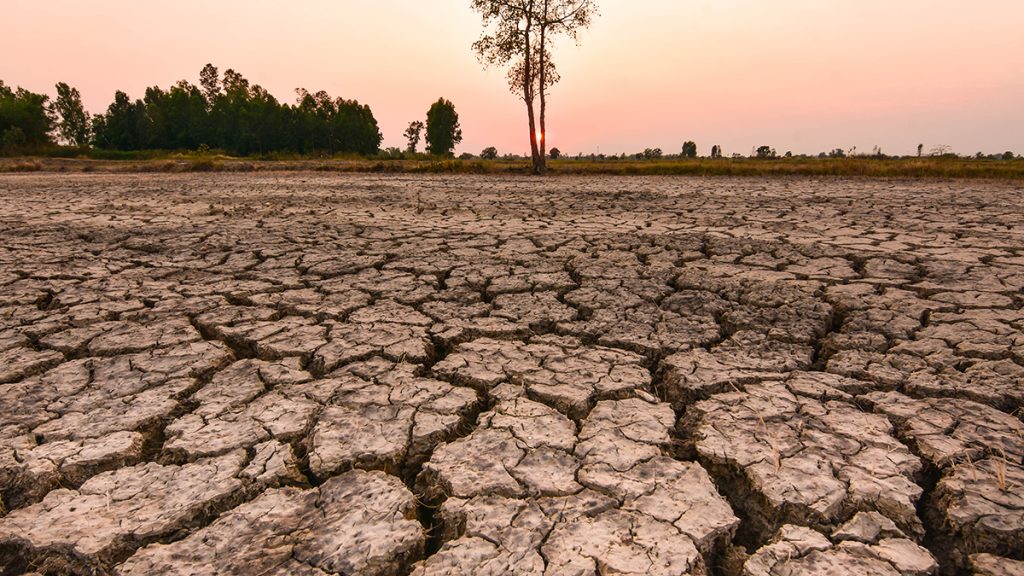Regional collaboration and proactive measures are essential to tackle the challenges posed by the El Niño-Southern Oscillation (ENSO) and other climate-related crises in Africa. This message was emphasized during a roundtable discussion on Thursday at the 9th Africa Regional Platform for Disaster Risk Reduction (DRR) in Namibia. The event, titled “Strategic Policy Directions on El Niño: Transformative Disaster Risk Reduction in Eastern and Southern Africa,” underscored the severe impacts of ENSO events in the region, exacerbated by climate change.
Organized by the UN Office for Disaster Risk Reduction (UNDRR), in collaboration with the UN Development Programme’s Resilience Hub for Africa, the African Union, and the Southern African Development Community (SADC), the event brought together ministers, regional representatives, and development partners to share best practices and explore collaborative strategies to address ENSO challenges.
Kamal Kishore, the UN Secretary-General’s Special Representative for Disaster Risk Reduction, stressed the importance of inclusive early warning systems to mitigate the adverse effects of climate disasters. He highlighted the need for clear communication across sectors to ensure all stakeholders can understand and respond effectively to climate forecasts. Kishore stated that it is crucial to incorporate lessons from past events to improve economic anticipation for future occurrences.
Since 2000, climate-related disasters in the region have resulted in approximately $540 billion in damages, with such events increasing in frequency and intensity due to climate change.
Anderson Banda, Director of the SADC Humanitarian and Emergency Operations Centre (SHOC), discussed the droughts induced by El Niño affecting Southern and Eastern Africa. He pointed out that several SADC member states are facing prolonged dry spells and severe weather events, urging discussions on the upcoming season’s forecast. Banda emphasized the importance of resilience and capacity building, given the ongoing series of extreme weather events.
The current El Niño episode has significantly impacted over 61 million people in Southern Africa due to drought and affected an additional 5 million in Eastern Africa due to flooding, marking one of the five strongest ENSO events in recent history.
Ko Barrett, Deputy Secretary-General of the World Meteorological Organization (WMO), highlighted the predictability of rainfall and temperature changes due to ENSO, noting that climate change could alter variability and frequency. She stressed the region’s progress in providing timely forecasts, enabling proactive mobilization of resources to address ENSO’s impacts.
As El Niño effects continue, there is a 60% chance of transitioning to La Niña in the coming months, potentially resulting in drought in Eastern Africa and increased flooding in Southern Africa. This scenario has prompted humanitarian partners to advocate for heightened preparedness efforts.
Reena Ghelani, UN Climate Crisis Coordinator for El Niño/La Niña, expressed concern over the current ENSO impacts, stating that nearly 30 million people in Southern Africa are facing severe food insecurity. She urged a shift towards long-term, transformative solutions to break the cycle of recurrent crises, as the frequency and intensity of climate-related events continue to rise.
Roundtable discussions focused on comprehensive strategies to address the root causes of vulnerability in the region. Moderated by Dr. Zeynu Ummer from the UNDP Resilience Hub for Africa, the dialogue emphasized the importance of national and regional cooperation, enhanced early warning systems, and increased investment in community-level climate resilience.
High-level representatives addressed the critical challenges posed by ENSO, shared strategic policy directions from their respective countries, and reaffirmed commitments to long-term disaster risk reduction initiatives. Recognizing the seriousness of the situation, member states called for strengthened institutional capacities, multi-sectoral partnerships, and collaborative community-led solutions to enhance resilience against future ENSO-related shocks.

